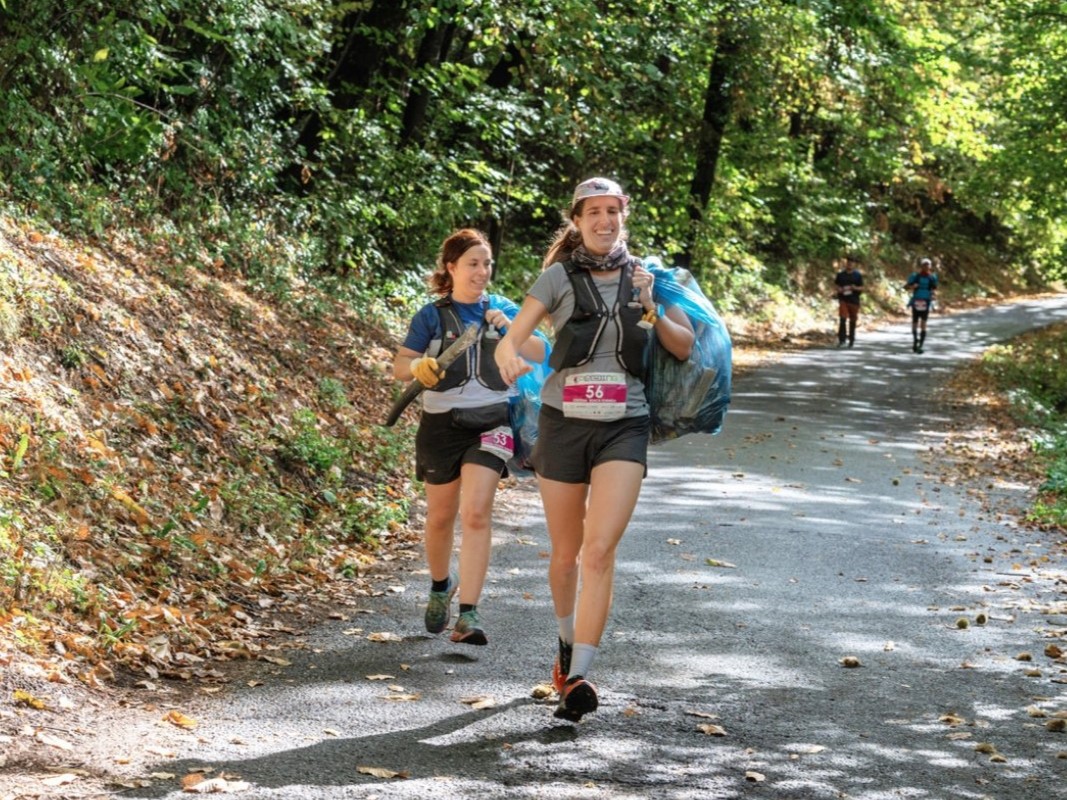
 Millionaire
Millionaire
Italian good news: Plogging, the new trend in sports that's good for you
- WTI Magazine #168 Oct 21, 2023
-

 Millionaire
Millionaire
Exercise for self-care and environmental protection. In a word: plogging. To practice it, one must leave home in classic runner's clothing equipped with a bag and a pair of gloves to pick up waste. Turning one's exercise routine into an eco-friendly sport that is good for the body and the environment.
A sport in its own right that over time has become a full-fledged movement spread around the world and has led to the birth of a specially organized championship. This is the World Plogging Championship, now in its third year, capable of bringing together runners from all over the world, united by a single goal: to clean up the land while running.
The name is an acronym for the Swedish words "collect" (litter, precisely) and "jog": "Plocka och jogga." It was coined in 2016 by Swedish runner Erik Ahlström who, tired of seeing trash everywhere, thought of turning ordinary jogging into a green activity. Those who practice plogging are called "ploggers," a term that refers not only to sportsmen and women but also to ordinary environmentally sensitive enthusiasts who decide to pick up trash while running or engaging in brisk walking. Because running is not necessary. In fact, one can walk, canoe, skateboard, or bike.
The term serves more to unite the different spontaneous movements that have sprung up around the world. Such as the Keep Clean And Run, an all-Italian plogging event started by Roberto Cavallo, which has been crisscrossing Italy since 2015 to raise awareness in municipalities against the phenomenon of littering, the act of throwing or abandoning small amounts of urban waste without using the appropriate containers. The aim is to create initiatives to collect waste before it reaches the sea, since 75 percent of what ends up in the water comes from far away, carried by wind and rivers.
The 2022 edition had brought together 76 athletes from all over Italy, Greece, Spain, Portugal, Sweden, the Netherlands, the United States, Ukraine and Uruguay. The runners covered 2,243 km along the Piedmont trails of the Chisone and Germanasca Valleys and collected 1,152 kg of waste. In this 2023 edition, 100 athletes have been granted access to the finals, scheduled but Sept. 29 to Oct. 1, 2023, in Genoa, the city that this year has already welcomed the world's most famous regatta, the Ocean Race, to Italy for the first time, and that during 2024, will be the European Capital of Sport.
To enter the finals, you must qualify by participating in one of the races chosen by the organizing committee, such as, in this year's case, the Tuscany Crossing, held in Castiglione d'Orcia, province of Siena, or the 100 Miglia Monviso in Piedmont. However, the championship is also open to non-professional runners. To do so, simply register at ploggingchallenge.com, select the "Plogging Challenge" route and accumulate points through personal sessions.
The score is automatically calculated by the system by entering the specifics of quantity and quality of waste collected, as well as athletic details. Each runner is asked to upload to the platform a clear photo of the collected waste, a screenshot of the athletic results (via special smartphone or smartwatch apps, and to select the quantity and quality of the collected waste. By freely choosing to run in your preferred territories, you clean up your chosen route and receive a score that allows you to enter the world rankings. At the end of the designated collection period, the best and the best ploggers in the world will directly get a bib for the finals of the World Plogging Championship.
The winner is not who arrives first at the end of the race but who collects the most waste. After the athletes arrive, in fact, the bags are opened and the counting of waste by the race officials thus allows the final ranking to be made, based on the distance covered, the overall elevation gain and the quality and quantity of waste collected. The latter will then be transformed into C02, the main greenhouse gas, not emitted into the atmosphere. So first collection, then recycling wherever possible.
In Italy there is now a lot of following. Alba, in Piedmont, was the first city in the world to institutionalize plogging, a decision made official last June 5 on World Environment Day. The municipality has opened a registry for ploggers, which anyone over the age of 18 can join, and will dedicate the first Monday of the month to this sporting activity. In Pesaro (Marche), on the other hand, plogging has morphed into a "marine" version, organizing ecological walks in the water, with participants who, equipped with a net, can pick up litter found along the way, actively contributing to making the sea on that stretch of coastline even cleaner.